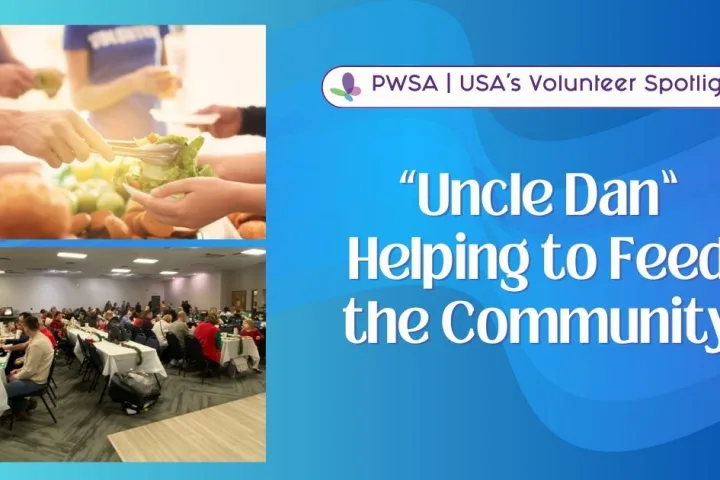Contributed by PWSA | USA’s Director of Family Support Stacy Ward, MS
As a parent, you know your child best and your input into the development of their Individual Education Program (IEP) is crucial. In addition to actively participating in discussions, goal development, and progress monitoring, creating a parent input statement that is incorporated into the IEP is a way for you to document your child’s strengths and challenges, both at home and as you see them in school.
I encourage you to pull out your child’s current IEP and review the parent concerns section. Is it written in your words or is it a summary of what the case manager interpreted as your concerns and input during the meeting? Does it accurately reflect what you feel the team needs to know about your child? If not, I encourage you to rewrite the statement and email it to the team requesting the IEP be amended to include the statement.
As you create your statement, ask yourself the following questions:
- What are my child’s interests and preferences?
- What does the school need to know about PWS to safely and effectively support my child?
- What do I see as my child’s functional and academic strengths?
- Do the current goals support my child’s functional and academic needs long term? If not, what do they need to meet their long-term functional and academic goals?
- How do I best communicate with my child?
- Do the current goals support my child’s sensory and self-regulation needs? If not, what do they need to be supported during challenging moments?
Although the parent input / concerns section should not be a place to track your complaints with the school, it is a place you should document requests you have made that were denied i.e., 1:1 paraprofessional or PWS specific training. In addition to noting your request was denied, include in your statement how your child would benefit both academically and functionally if those requests had been granted.
Keep your statement factual, polite, and professional. Each time you meet as an IEP team, review your statement to ensure it is accurate and if further revisions need to be made.
To receive assistance writing your parent input statement, contact the Family Support team at info@pwsausa.org or 941.312.0400.





 Perry A. Zirkel has written more than 1,500 publications on various aspects of school law, with an emphasis on legal issues in special education. He writes a regular column for NAESP’s Principal magazine and NASP’s Communiqué newsletter, and he did so previously for Phi Delta Kappan and Teaching Exceptional Children.
Perry A. Zirkel has written more than 1,500 publications on various aspects of school law, with an emphasis on legal issues in special education. He writes a regular column for NAESP’s Principal magazine and NASP’s Communiqué newsletter, and he did so previously for Phi Delta Kappan and Teaching Exceptional Children. Jennifer Bolander has been serving as a Special Education Specialist for PWSA (USA) since October of 2015. She is a graduate of John Carroll University and lives in Ohio with her husband Brad and daughters Kate (17), and Sophia (13) who was born with PWS.
Jennifer Bolander has been serving as a Special Education Specialist for PWSA (USA) since October of 2015. She is a graduate of John Carroll University and lives in Ohio with her husband Brad and daughters Kate (17), and Sophia (13) who was born with PWS. Dr. Amy McTighe is the PWS Program Manager and Inpatient Teacher at the Center for Prader-Willi Syndrome at the Children’s Institute of Pittsburgh. She graduated from Duquesne University receiving her Bachelor’s and Master’s degree in Education with a focus on elementary education, special education, and language arts.
Dr. Amy McTighe is the PWS Program Manager and Inpatient Teacher at the Center for Prader-Willi Syndrome at the Children’s Institute of Pittsburgh. She graduated from Duquesne University receiving her Bachelor’s and Master’s degree in Education with a focus on elementary education, special education, and language arts. Evan has worked with the Prader-Willi Syndrome Association (USA) since 2007 primarily as a Crisis Intervention and Family Support Counselor. Evans works with parents and schools to foster strong collaborative relationships and appropriate educational environments for students with PWS.
Evan has worked with the Prader-Willi Syndrome Association (USA) since 2007 primarily as a Crisis Intervention and Family Support Counselor. Evans works with parents and schools to foster strong collaborative relationships and appropriate educational environments for students with PWS. Staci Zimmerman works for Prader-Willi Syndrome Association of Colorado as an Individualized Education Program (IEP) consultant. Staci collaborates with the PWS multi-disciplinary clinic at the Children’s Hospital in Denver supporting families and school districts around the United States with their child’s Individual Educational Plan.
Staci Zimmerman works for Prader-Willi Syndrome Association of Colorado as an Individualized Education Program (IEP) consultant. Staci collaborates with the PWS multi-disciplinary clinic at the Children’s Hospital in Denver supporting families and school districts around the United States with their child’s Individual Educational Plan. Founded in 2001, SDLC is a non-profit legal services organization dedicated to protecting and advancing the legal rights of people with disabilities throughout the South. It partners with the Southern Poverty Law Center, Protection and Advocacy (P&A) programs, Legal Services Corporations (LSC) and disability organizations on major, systemic disability rights issues involving the Individuals with Disabilities Education Act (IDEA), Americans with Disabilities Act (ADA), and the federal Medicaid Act. Recently in November 2014, Jim retired.
Founded in 2001, SDLC is a non-profit legal services organization dedicated to protecting and advancing the legal rights of people with disabilities throughout the South. It partners with the Southern Poverty Law Center, Protection and Advocacy (P&A) programs, Legal Services Corporations (LSC) and disability organizations on major, systemic disability rights issues involving the Individuals with Disabilities Education Act (IDEA), Americans with Disabilities Act (ADA), and the federal Medicaid Act. Recently in November 2014, Jim retired.